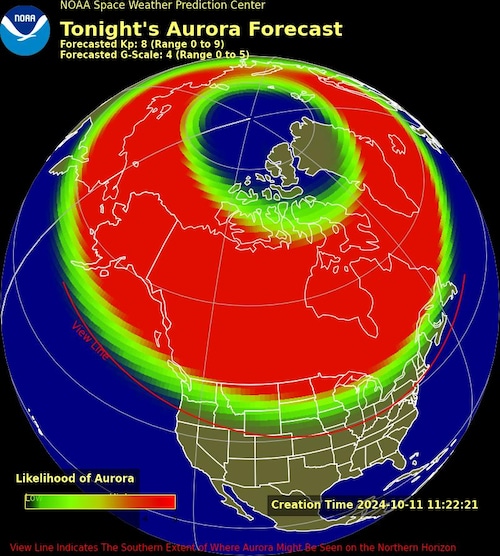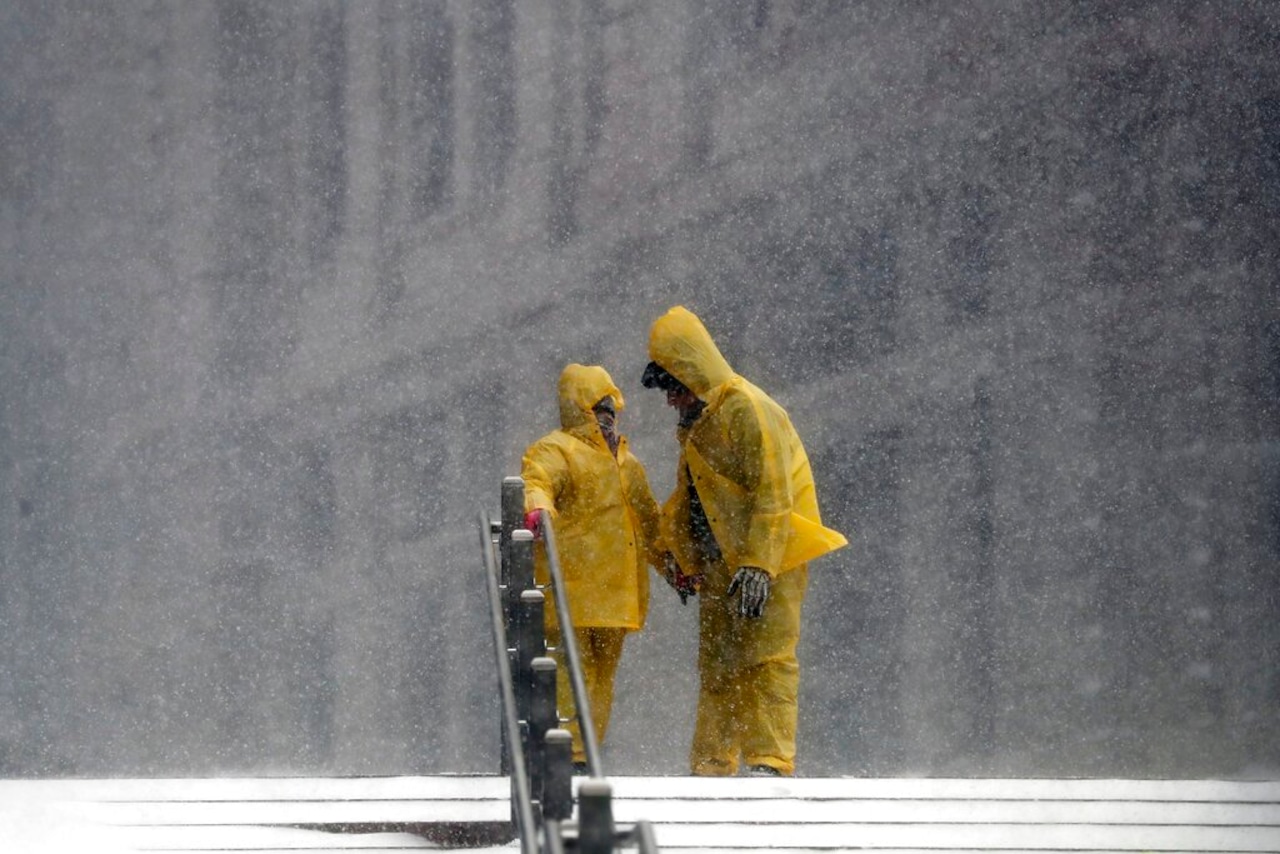Following a dazzling show of lights in the sky Thursday night, Massachusetts could be in for more aurora on Friday.
A rare “severe” geomagnetic storm lit the skies on Thursday after a fast coronal mass ejection from the sun hit Earth’s atmosphere, according to the National Oceanic and Atmospheric Administration’s Space Weather Prediction Center.
Thursday’s geomagnetic storm was categorized as being a G4, or “severe,” storm. For Friday, another G4 storm is expected to appear.
This coronal mass ejection left a sunspot on Tuesday before it hurtled towards Earth, forecasters said. They expected it would hit Earth’s atmosphere, as it did, on Thursday.

Chances are that New England could see more northern lights on Friday, Oct. 11. Courtesy of the National Oceanic and Atmospheric Administration.National Oceanic and Atmospheric Administration
The red line on the map above indicates where the northern lights are expected to be visible, according to NOAA. All of New England should have a view of the aurora.
So far, weather conditions are expected to be perfect for looking at the night sky. No clouds or precipitation are expected for Friday night, according to the National Weather Service.
The northern lights can be seen as hues of green, pink and purple when coronal mass ejections hit Earth’s atmosphere and the colliding elections fall down to lower states of energy, NOAA stated previously. This results in the aurora seen in the night sky.
“The brightness and location of the aurora is typically shown as a green oval centered on Earth’s magnetic pole,” according to NOAA’s website. “The green ovals turn red when the aurora is forecasted to be more intense. Aurora can often be observed somewhere on Earth from just after sunset or just before sunrise. The aurora is not visible during daylight hours. The aurora does not need to be directly overhead but can be observed from as much as 1,000 km away when the aurora is bright and if conditions are right.”




